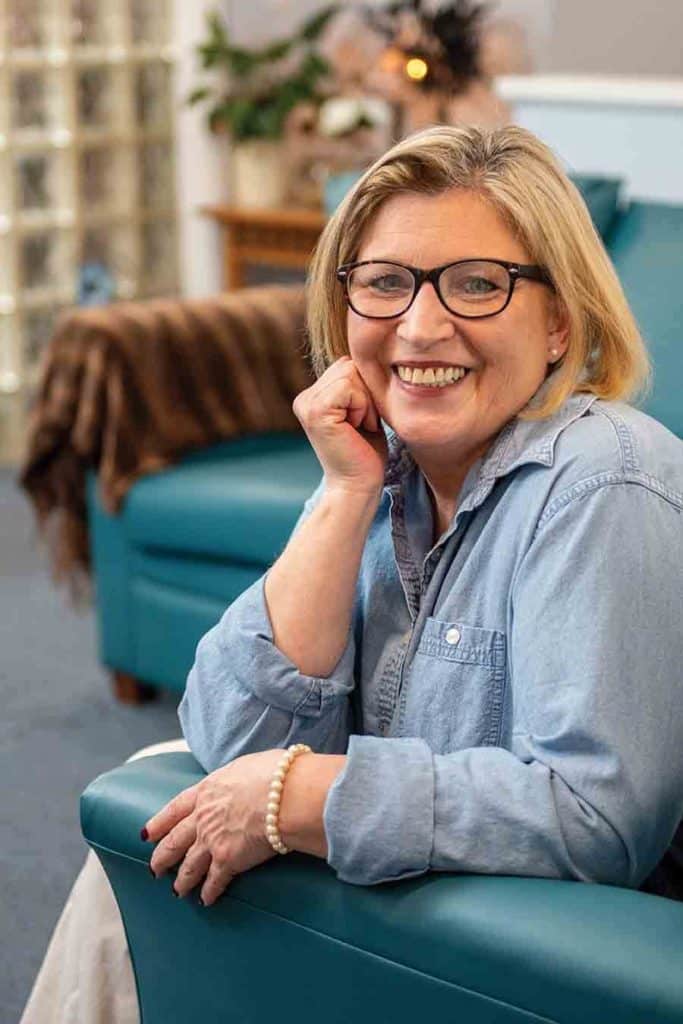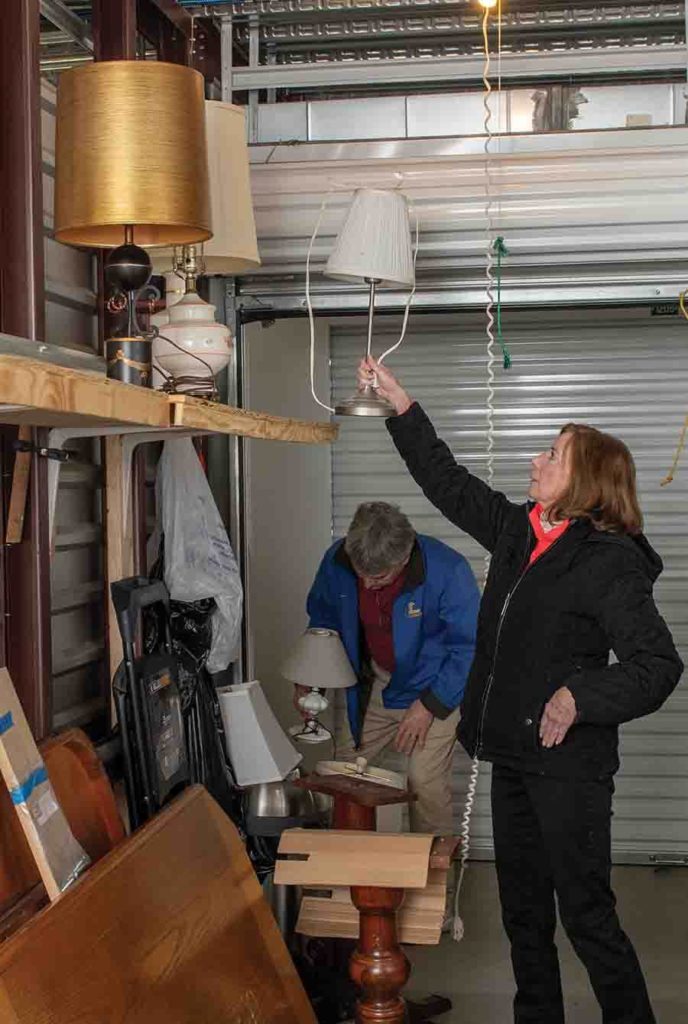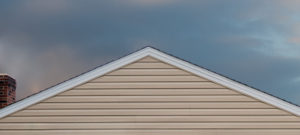
THIRD IN A SERIES: Throughout 2020, the Catholic Review will explore the Corporal and Spiritual Works of Mercy. In this third edition of the series, we explore sheltering the homeless.
Most Sunday mornings, Patricia Petty takes a bus to Mass at St. Pius X in Rodgers Forge.
She was close enough to walk to that liturgy a year ago, but in no shape to do so, as alcoholism had the 56-year-old, a product of Catholic schools and mother of two adult daughters, living under a bush in Chinquapin Park, along Northern Parkway.
“I slept on some cardboard, and had plastic to keep me dry,” Petty said. “Nobody really noticed me. When you’re homeless, you’re invisible.”
On a rainy morning in mid-February, Petty was warm, dry and downright spry after nine months of sobriety and another solid night of sleep at Marian House, which gives women whose challenges have included homelessness the skills and resources they need to “become productive and contributing citizens.”
According to the U.S. Interagency Council on Homelessness, Maryland had an estimated 6,500 people experiencing that in January 2019. According to St. Vincent de Paul of Baltimore, however, that figure is 4,000 “on any given night in the Baltimore area” alone.
Whatever the scope, Catholic agencies and parishes are doing something about it.
‘My space’
Founded in 1982 as a joint project of the Sisters of Mercy and the School Sisters of Notre Dame to assist women leaving incarceration, Marian House has provided help to more than 2,600 women. Over the last generation, that has included their children, more than 800, through transitional and permanent supportive housing.
“They’ve all experienced homelessness at some time,” Katie Allston, executive director of Marian House, said of its clients. “They’ve slept in a car or an abandoned house or sought a shelter because they have other issues that need to be addressed.

“Ninety-five percent of our women have substance abuse issues and 80 percent have a chronic mental illness. Eighty percent have experienced domestic abuse, and 70 percent have been incarcerated. More than half don’t have a high school diploma and more than half experienced childhood sexual assault.”
Petty checked some of those boxes during her intake at Marian House.
She attended the parish school at Immaculate Conception in Towson and Towson Catholic High School, and left what is now Notre Dame of Maryland University to go into sales. Petty divorced in 2006, and her alcoholism worsened after her father died in 2013. Her bipolar disorder received irregular treatment, and her brushes with the law included resisting arrest.
“When I was drinking, I wasn’t a happy person,” Petty said. “I was screaming at people all the time. … I became unemployable. I would beg for change for alcohol.”
She drank “enough so I could pass out for a while. When you wake up, you’ve got to move around just to stay warm. … A lot of places don’t want you in there, because of the way I looked and smelled.”
Petty has been sober since last May 14, when “she took a drink just to get dressed that day to go to the hospital. One of last people who was talking to me who had a vehicle got me down to (Johns Hopkins) Bayview. I got into detox. It was terrible.”
After a stretch in a shelter, Petty joined a tour for prospective volunteers at Marian House’s main location, on the campus of the former St. Bernard Parish. Now she has a room there.
“It’s my space,” Petty said. “I haven’t had a space in so long.”
Just as vital as that security are the counseling and support available to residents, which includes therapy, education and employment assistance.
“People need more than just an apartment,” Allston said.
Like new

Petty came to Marian House from the Helping Up Mission on Baltimore Street, east of a stretch of similar agencies. They include the Our Daily Bread Employment Center, the most visible example of a Catholic Charities of Baltimore network that stretches from Anne Arundel to Harford counties, and Health Care for the Homeless.
The latter’s collaborative partners include St. Vincent de Paul Parish, just to the south, at the bottom of the Fallsway. Health Care for the Homeless places clients in accommodations. The parish’s Resource Exchange lessens their out-of-pocket expenses by supplying furniture, bedding, towels, kitchen supplies and other household items.
The parish donates approximately $35,000 to the effort annually, which includes purchasing new beds and renting three storage units on Howard Street. Settling two or three households a week, it has served nearly 900 individuals and families.
On Mondays, volunteers assemble “household kits” at the parish. On Thursdays, they are transferred, along with larger donated items, to the storage facility. A moving van and crew meet the volunteers there, where they go about outfitting several households.
Armed with a tape measure and clipboard that included slips listing the Mass schedule at St. Vincent de Paul, Peggy Meyer looked over wish lists for two households that between them totaled five children. Her crew sidestepped heavy dining room sets, often remnants of retirement home rummage sales.
“The quality of some of these pieces is unbelievable,” said Kathy Wellman, who learned about the outreach from the bulletin at St. Isaac Jogues in Carney.
On site, volunteers help assemble beds and remove doors to make way for larger pieces. Most live in the suburbs, but know of the legacy of St. Vincent de Paul Parish, which plans to reopen, during the day, an adjoining park to the homeless.
Peggy Cronyn coordinates an effort that involves 40 volunteers. She’s typical of the crew, in that she’s retired. Her career in nonprofits included Catholic Charities, Catholic Relief Services and Health Care for the Homeless.
“Sometimes people lose the community they’re coming from, and settle in a different part of the city,” Cronyn said. “This helps.”
Welcome the stranger
Jason Gill and Brandi Gaver awoke Christmas morning in the first floor of a row home two blocks from Coppin University. It was a desperately welcome contrast to a camp for the homeless, along the Gwynns Falls under Interstate 95, where they bedded down Thanksgiving Day.
That November night, however, included hope, in the form of the welcome they received at Transfiguration Catholic Community. The helpers at its hot Thanksgiving meal for those in need included parishioners from its sister parish, St. Andrew by the Bay in Annapolis, and its pastor, Father Jeffrey Dauses.
“They were in a corner, eating their meal, all alone,” Father Dauses said. “They looked so forlorn, and hopeless. They’re one of those couples who fell through the cracks, who needed a boost to get their life back on track.”
Gill, 34, points to addiction as the reason he dropped out of Towson High. Gaver, 35, described a similarly dysfunctional upbringing in Romney, W. Va. They became a couple in 2007, and had a son, Christopher, who was 10 when he went into a diabetic coma and died.
They were regulars in a methadone clinic, trying to heal addiction, when they encountered Father Dauses. He took them to a dollar store for supplies, made the arduous hike to their camp, and shared their story on social media.
“This did not begin as a parish thing,” he said. “but when I shared it on Facebook, the response was overwhelming. We speak about the role of the Holy Spirit and how providence makes things happen, well, this is an example of that.”
Someone in the parish knew someone with a vacant property, and an outreach fund at St. Andrew by the Bay paid six months rent. Gas and electric, groceries, household needs, clothing, all were donated by Father Dauses’ people. The response was typical, he said, as it’s one of eight Catholic parishes which support the Arundel House of Hope, an emergency winter shelter that rotates among weekly sites.
Gill is a trained cook, but his main source of income has been collecting cans and scrap metal, not easily taken to a salvage center when you rely on public transportation.
Steady employment is hard to secure without a permanent address. Having one helped Gill land a job at a hardware store on North Avenue, a 10-minute walk from his new home. He’s scheduled to start there March 1.
“A lot of organizations and churches, you can’t get through the door without being stereotyped,” Gill said. “It seems like you’re never going to get that chance. Father Jeff, he gave us that chance.”
Email Paul McMullen at pmcmullen@CatholicReview.org
Read more “Works of Mercy” stories here.
